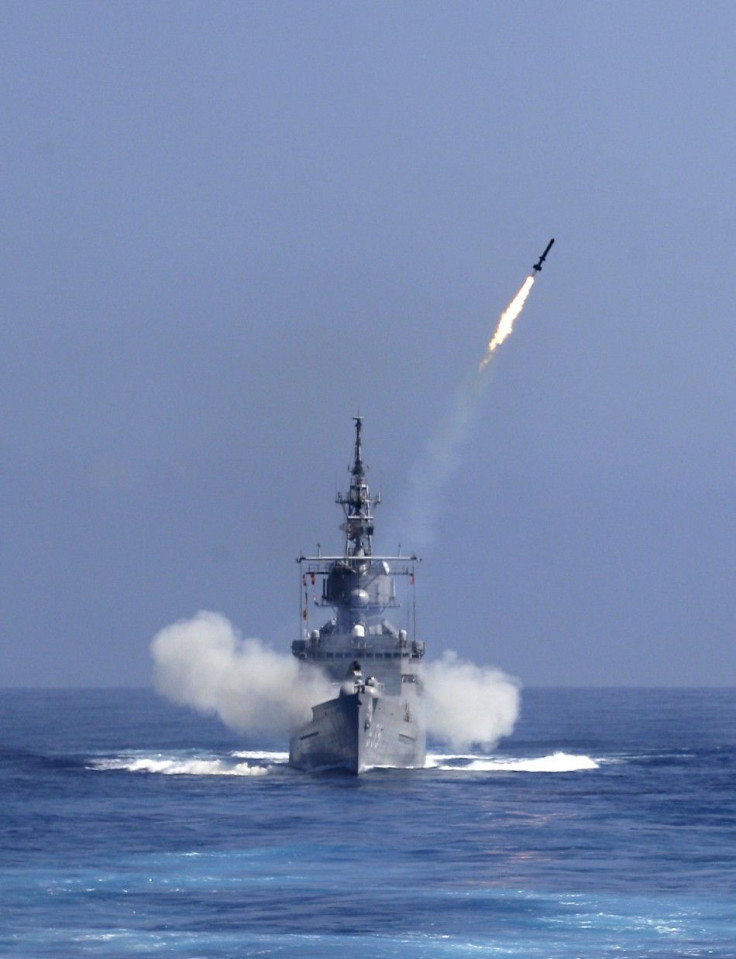Britain Exposes Vulnerability, Asks NATO To Search Deep Ocean Waters For Russian Submarine; Russian Military Power To Rise Bigger in 2015 – Report

A reported sighting of a Russian submarine in Scottish waters in November has Britain pushing the alarm button and exposing its vulnerability when it asked NATO to help find the elusive underwater intruder.
The request for assembly of NATO spy planes resulted because Britain already lacks fixed-wing aircraft which are designed to search for submarines, according to the BBC. Assistance to balance Britain's military weakness then came from the US, France and Canada. Portal ottawacitizen.com said Canada sent a CP-140 Aurora aircraft, the U.S., two RCAF Aurora, while France sent its Dassault Atlantique.
The incident of the alleged sighting of the Russian submarine in the waters of Scotland boomeranged back to Britain. Angus Robertson, Scottish National Party Defence spokesman, lamented Britain's requesting its NATO allies for military assistance was "hugely embarrassing" because it exposed the fact that the UK lacks "such critical maritime patrol assets." In a bid to claim savings of £2billion over a decade, the British government scrapped its Nimrods as contained in the 2010 Strategic Defence and Security Review. The decision, therefore, left the UK without a specialist maritime patrol aircraft.
The Nimrod spy planes, according to the Telegraph, had been with the RAF's reconnaissance fleet since the late 1960s. It was mainly built to aid in anti-submarine warfare.
An unidentified spokeswoman from the Ministry of Defence said NATO partners have indeed "provided assistance for the operation of maritime patrol aircraft from RAF Lossiemouth for a limited period with the Royal Navy." She didn't detail just what exactly the maritime operations were about.
Although the assembly didn't find any Russian submarine in the territorial waters of the UK, Robertson blasted that it was highly absurd that "as a maritime nation, Scotland doesn't have a single maritime patrol aircraft."
The Telegraph reported that Matthew Barzun, the US Ambassador to London, had called on Britain not to slash its defence budget in the light of current Russian aggression and expansions. "We want to make the world more peaceful, more prosperous and more just. When Britain and the US say that, they mean the same things. That's why we work together," Barzun said.
Britain may want to take its cue from Russia which, despite a coming recession, will still spend aggressively on its military modernisation in 2015 by at least 30 percent. This is equivalent to 3.3 trillion rubles ($62 billion). The amount will be used to buy more aircraft, submarines, missiles and weapons.
Despite Russia being known for its secrecy, the Moscow Times learned that several new armoured vehicles will be unveiled on May 9 during Victory Day celebrations. These include new tanks, infantry fighting vehicles and armoured personnel carriers. Russia's new Armata main battle tank could be among those to be launched. The Armata tank, according to the TASS news agency, features a heavy armour and a fully digital control system. It can be controlled remotely.
The Russian air force is set to receive in 2015 additional 150 new airplanes and helicopters, on top of the stray MiGs, Sukhois and Tupolev aircraft that have been harassing the European Union's international airspace this 2014. The airplanes, according to Moscow Times, will be a combination of old and new models. The country's Navy will also receive new additional submarines and frigates in 2015.




















